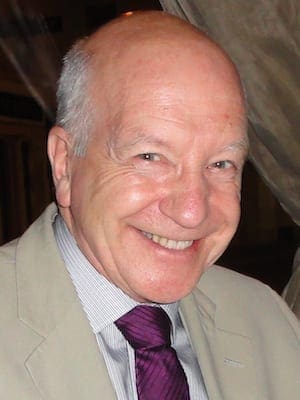The Christian lives under the imperative of love.
That starts in the heart of God because the Christian knows that the one fundamental reality in the universe is a love that creates, redeems, sustains and will renew a created order originally conceived in the eternal love of the Father.
We love because we are loved. And the love with which we are loved is infinitely costly, inexhaustibly faithful, endlessly creative and willfully purposeful.
The thing is, once we start talking of Christian love of neighbor, of enemy and of God, we speak of a love like no other, originating in the outpouring of love that brought the universe into being, and that same eternal purposive love poured out in the redemptive, reconciling and renewing love, revealed in Jesus crucified and risen. That is the starting point.
When Paul talks of the hope that does not disappoint, he is speaking of that same eternally self-giving, creating, redeeming love of God poured into our hearts by the Holy Spirit.
Christian love is not natural, it is supernatural; it is not human love amplified, but divine love multiplied in the hearts of a believing community.
Through the church, the body of Christ, the love and light of Christ shine through a vast community of communities that are like shining stars in a dark sky amid all the corrupt and crooked ways we as human beings frustrate and resist what Dante described as “the love that moves the sun and other stars.”
The church’s search for a gospel that is relevant, a message that is attractive, a missional strategy that is effective must always begin from that first dynamic premise: God is love.
In Jesus, that love became embodied, alive among us, performed and displayed in a life of promiscuous welcome, forgiving acceptance, costly compassion and a capacity to look at and see and love each human heart in all its potential and waywardness.
So that imperative of love is more than determined goodwill, more than doing our bit to make the world a better place, more than training ourselves in generosity and compassion.
The imperative to love is underwritten by an originating and primary love that transcends our natural inclinations toward kindness, a love that pushes beyond what might be manageable and reasonable, a love that seeks to reproduce in our fallible and limited lives the love that poured itself out in creation and was poured out on the cross by the crucified and is poured into us by the Holy Spirit.
No, that doesn’t mean we have nothing to do or contribute. There is behind the love command an assumed obedience of the heart, enacted as an obedience of faith and rooted in the practiced gratitude for the gift and givingness of divine love.
Such obedience, gratitude and love for God is enabled by grace and fired by the Holy Spirit as the power and presence of God pervasive of all creation and gifted to the church as the body of the living and risen and ever-present Christ.
And it is through the power and presence of that love in the heart – reshaping mind and thought and redirecting the will and conscience – that we respond to the love command: to love God completely, our neighbor as ourselves, and our enemies in imitation of the Christ in whom we see the heart of God.
The too little-known theologian Arthur McGill understood deeply and powerfully the implications of this kind of theology.
“A person only begins to love as Jesus commands when they give out of what is essential to them, out of what they cannot ‘afford.’ For Jesus, it is the deliberate and uninhibited willingness to expend oneself for another that constitutes love,” McGill wrote in his book, “Suffering: A Test of Theological Method.”
Love your neighbor as yourself; love your enemies and do good to those who hate you. How? With what? Why?
These questions erupt out of that well we all recognize, the deep well of rationalization, self-justification and resistance to any demands that require the surrender of the heart and the dethroning of the ego.
Self-expenditure is as characteristic of Christian love as it is characteristic of Christ.
The words “love” and “cross” are an unbreakable juxtaposition in the syntax of the gospel and in every life spelled out in the obedience of faith.
Love, therefore, is forever linked to and demonstrated by sacrifice, by my willingness to give out of what is essential to me, to accept that what is asked is unaffordable if personal interests and comforts come first.
The paradox is that in the self-giving of love, the personal cost is not a diminishment, but a personal transformation toward the likeness of Christ.
James Gordon is part-time minister of Montrose Baptist Church in Angus, Scotland, and the former principal of the Scottish Baptist College. He is on the advisory board of the Centre for Ministry Studies, University of Aberdeen, and is honorary lecturer in the School of Divinity, History and Philosophy. A version of this article first appeared on his blog, Living Wittily, and is used with permission.
Part-time minister of Montrose Baptist Church in Angus, Scotland, and the former principal of the Scottish Baptist College. He is on the advisory board of the Centre for Ministry Studies, University of Aberdeen, and is honorary lecturer in the School of Divinity, History and Philosophy.

